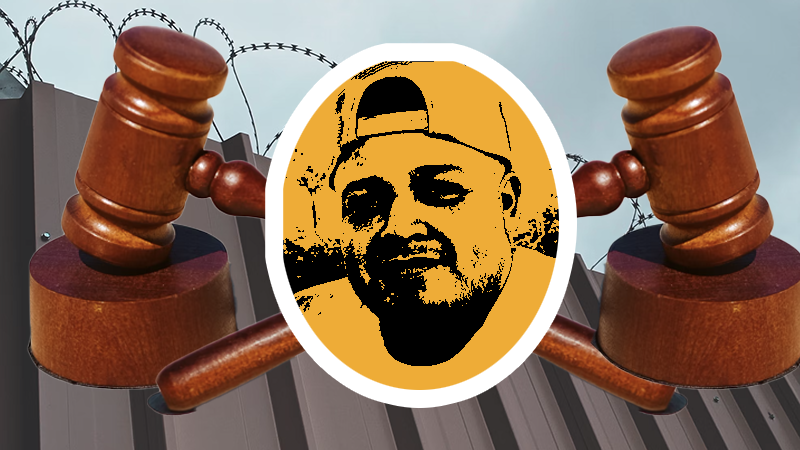
Articulated Insight – “News, Race and Culture in the Information Age”

The case of Kilmar Armando Abrego García, a Salvadoran national deported under controversial circumstances in 2025, has become a flashpoint in the ongoing debate over immigration policy, due process, and human rights. His story is not just about one man’s struggle but a broader reflection of systemic issues in immigration enforcement and the erosion of constitutional protections. The case has sparked legal, political, and ethical debates, making it one of the most significant immigration cases in recent U.S. history.
The Deportation and Its Fallout
On March 15, 2025, Abrego García was deported to El Salvador by the Trump administration, which later described the deportation as an “administrative error.” At the time, Abrego García was living legally in Maryland under a “withholding of removal” status, granted in 2019 due to the danger he faced from gang violence in El Salvador. Despite his legal status, he was sent to El Salvador’s notorious Terrorism Confinement Center (CECOT), a maximum-security prison known for its inhumane conditions. The administration accused him of being a member of the MS-13 gang, a claim he and his family vehemently denied.
The deportation was not only a violation of his protected status but also a stark example of the administration’s aggressive immigration policies. The case quickly escalated into a legal battle, with Abrego García’s wife filing a lawsuit demanding his return. The U.S. Supreme Court unanimously ruled that the government must “facilitate” his return, but the administration interpreted this as a minimal obligation, leading to prolonged litigation and public outcry.
A Broader Crisis of Due Process
The Kilmar Abrego case underscores a critical issue: the erosion of due process in immigration enforcement. The Fifth Amendment guarantees that no person—citizen or non-citizen—can be deprived of life, liberty, or property without due process of law. However, Abrego García’s deportation bypassed these protections, raising concerns about the government’s ability to act unilaterally and without judicial oversight.
Justice Sonia Sotomayor, in her concurring opinion on the case, warned of the dangerous precedent this sets. She noted that the government’s argument implied it could deport and incarcerate anyone, including U.S. citizens, without legal consequence, as long as it acted before a court could intervene. This chilling possibility has alarmed legal experts and civil rights advocates, who see the case as a test of the judiciary’s ability to check executive power.
The Role of CECOT and Human Rights Violations
Abrego García’s imprisonment in CECOT highlights another troubling aspect of the case: the U.S. government’s agreement with El Salvador to detain deportees in a facility notorious for human rights abuses. CECOT, described by some as a modern-day concentration camp, has been criticized for its overcrowded cells, lack of basic amenities, and reports of torture and deaths in custody. By sending deportees to such a facility, the U.S. has been accused of outsourcing human rights violations.
The Salvadoran government, under President Nayib Bukele, has used CECOT as a symbol of its tough-on-crime policies. However, critics argue that the prison is less about justice and more about political theater, designed to project strength while disregarding the rule of law. For Abrego García, being sent to CECOT was not just a deportation but a sentence to inhumane treatment without trial.
The Political and Social Implications
The case has become a political flashpoint, with Democrats and Republicans offering starkly different interpretations. For Democrats, Abrego García’s deportation is a constitutional crisis, highlighting the dangers of unchecked executive power and the need for comprehensive immigration reform. For Republicans, the case is framed as a matter of national security and the enforcement of immigration laws.
Beyond politics, the case has mobilized grassroots organizations, unions, and human rights advocates. Groups like CASA and the International Association of Sheet Metal, Air, Rail, and Transportation Workers (SMART) have rallied behind Abrego García, emphasizing his contributions to his community and the injustice of his treatment. His story has also resonated with immigrant families across the country, who see in it a reflection of their own fears and struggles.
A Defining Moment for Justice
The Kilmar Abrego case is more than a legal battle; it is a defining moment for the principles of justice, fairness, and human dignity. It forces the nation to confront uncomfortable questions: How far can the government go in the name of national security? What happens when due process is sidelined? And who holds the government accountable when it oversteps its bounds?
As Abrego García’s case continues to unfold, it serves as a stark reminder of the fragility of rights and the importance of vigilance in protecting them. His story is a call to action for lawmakers, advocates, and citizens to ensure that the rule of law is upheld and that no one—regardless of their immigration status—is deprived of their fundamental rights.
#JusticeForKilmar #ImmigrationReform #HumanRights
